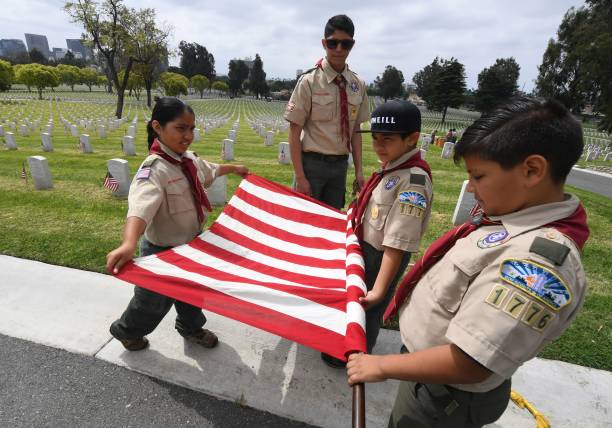Flag Day

Americans have a unique attachment to the Stars and Stripes. Drive down the street of any residential neighborhood and you will more than likely see the American flag flying in front of one or more houses. The grand finale of this display of flags is on June 14th, which has been designated as “Flag Day.” Apparently, according to google, the United States is one of 81 countries around the world that honors its national ensign on a special day. In Canada Flag Day is February 15, the anniversary of the adoption of the beloved maple leaf flag. Mexico celebrates Día de la Bandera on February 24.
The title for my blog is “Windmills and Tory Gates.” The windmill is a symbol of the Netherlands, the Tory Gate symbolizes Japan. America has no such national symbol, unless you count the Golden Arches. The flag, with its 50 stars, unites us. You can go to Brooklyn, New York; Selma, Alabama; El Paso, Texas; Minot, North Dakota, or the island of Guam and you will see the same flag. It symbolizes what we all have in common.
The American flag is especially significant to veterans. We are willing to die for the nation the flag symbolizes. Like so many veterans, I was given an American flag at my retirement and the words of the poem, “Old Glory” were read. The first two stanzas of the poem are as follows:
I am the flag of the United States of America. My name is Old Glory. I fly atop the
world’s tallest buildings. I stand watch in America’s halls of justice. I stand guard
majestically over great institutions of learning.
I stand guard with the greatest military power in the world. Look up and see me. I
stand for peace, honor, truth and justice. I stand for freedom. I am confident; I am
arrogant; I am proud. When I am flown with my fellow banners, my head is a little
higher, my colors a little truer. I bow to no one. I am recognized all over the world.
This important national symbol is to be respected, and so over time we have developed a “Flag Etiquette,” rules for how our national emblem is to be displayed, stored, and used. The Veterans of Foreign Wars has a wonderful website that lays out how to properly treat our flag.
The following “Special Rules” come from that site:
Do not let the flag touch the ground.
Do not fly flag upside down unless there is an emergency.
Do not carry the flag flat, or carry things in it.
Do not use the flag as clothing.
Do not store the flag where it can get dirty.
Do not use it as a cover.
Do not fasten it or tie it back. Always allow it to fall free.
Do not draw on, or otherwise mark the flag.
I’m troubled by the frequent use of our common national standard for partisan political purposes. I’m not talking about political candidates of either party properly displaying the flag on the podium when they offer their speeches. I’m referring to things like Americans (including a member of the Supreme Court, or his wife) flying the flag upside down to make a political statement. I’m referring to American flags with a former President’s face printed in the middle of it. I’m referring to the American Flag being used as the letter “U” in a word that encourages a sexual assault on the current President. Last week I saw Old Glory flying above a Confederate flag—two flags representing two different nations at war. Which nation is this homeowner a member of?
I suspect I will hear from readers that I’m being unfair, that I’m only pointing out abuses of the flag by the political right. Perhaps I’m blind to how the left does the same thing. I do remember in the 1960s those on the left would burn the flag in protest against the Vietnam war. Many were appalled at such disrespect. But the right to freedom of speech allows the use the flag in ways that Flag Etiquette does not.
The First Amendment to the US Constitution allows freedom of speech, including speech that is unpopular, even disgusting. Flag etiquette is a custom, a means of respect, not a law. The law allows us to be impolite. But the lack of decorum does have consequences. It uses something that is meant to unite for the purpose of division. The poem, Old Glory, speaks to these consequences:
I have been soiled, burned, torn and trampled on the streets of countries that I have
helped set free. It does not hurt, for I have been soiled, burned, torn and trampled
on the streets of my own country. and when it is by those I have served in battle with,
it hurts. But I shall overcome, for I am strong.
When you see the American Flag flying this coming Friday (or any day), I would invite you to reflect not on our differences, but on what we all have in common.
Here’s to Old Glory! Long may she wave!

